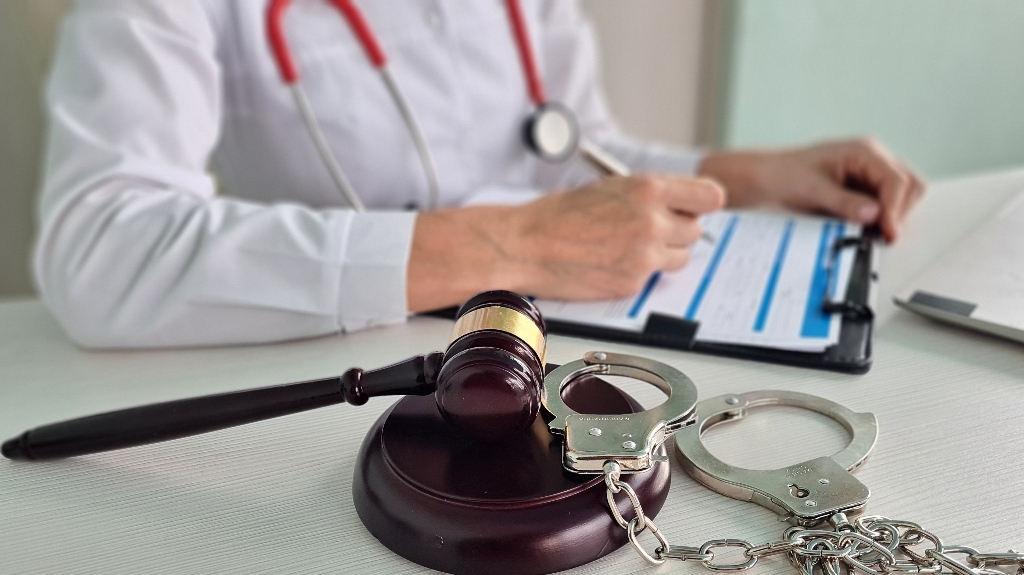Medical Negligence
Leading Medical Malpractice Attorney in Pennsylvania

As the region’s leading medical malpractice law firm, Latona Law has helped recover over $175 million in compensation for families in the Wilkes-Barre/Scranton area. We specialize in cases involving catastrophic injuries such as brain injuries, strokes, heart attacks, infections, amputations, and wrongful death caused by medical negligence.
If you suspect that medical negligence played a role in your or a loved one’s injury, there are important warning signs to look for. These may include unexpected complications following a routine procedure, a sudden deterioration in condition without clear explanation, misdiagnosis or delayed diagnosis, medication errors, or signs that appropriate testing or treatment was not provided. If something feels wrong about the care you received, seeking a legal and medical review can be an important step toward getting answers.
At Latona Law, we understand the devastating impact that medical negligence can have on individuals and families. Our experienced team works closely with leading medical experts to thoroughly investigate each case, uncover the truth, and fight for the full and fair compensation our clients need to move forward.
Get started
Contact us for a free case evaluation

Why Choose Latona Law?
For over 30 years, Latona Law has been a trusted advocate for families in the Wilkes-Barre/Scranton area dealing with birth injuries. Our attorneys bring extensive knowledge and experience to every case, working closely with medical experts to identify potential negligence and build a strong case. We offer free consultations and only charge fees if we recover compensation for you, ensuring that you receive the support you need without financial risk.

Experienced Representation for Catastrophic Medical Injuries
When a medical error results in a life-changing injury or death, you need an experienced legal team to hold the responsible parties accountable. At Latona Law, we focus exclusively on medical negligence cases, allowing us to dedicate the resources and personalized attention necessary to thoroughly investigate and win these complex cases.
Our team has over 30 years of experience representing families in Luzerne and Lackawanna counties, particularly in cases involving birth injuries, stroke, heart attack, brain injury, amputation, infections, and any other preventable catastrophic injuries or deaths caused by medical errors.
If you believe a medical professional’s failure to provide proper care resulted in catastrophic injury, pain, or death for you or a loved one, contact Latona Law today at (570) 825-9000 for a free consultation.
Types of Medical Malpractice Cases We Handle:
- Brain Injury
- Cerebral Palsy
- Emergency C-Section
- Placental Abruption
- Hypoxic Encephalopathy
- Stroke Injury
- Heart Attack
- Infection
- Amputation
- Wrongful Death
- Cancer Misdiagnosis
- Hospital Negligence
- Medical Negligence
How Do I Know If Medical Malpractice Occurred?
Determining whether medical malpractice occurred is not always straightforward. At Latona Law, we make the process as easy as possible for you. The first step is a free 15-minute consultation with one of our medical malpractice attorneys. During this consultation, we will gather the facts needed to begin a medical negligence review.
Even if malpractice is evident, there are various statutes and limitations that could impact your ability to file a lawsuit. After a thorough review by our legal team and medical experts, we will assess if a medical error or negligence occurred and whether your claim meets the requirements to proceed in Pennsylvania.
How Long Do I Have to File a Medical Malpractice Lawsuit?
The time frame for filing a medical malpractice claim varies based on the type of injury and the circumstances of your case.
It’s essential to act quickly to preserve your right to compensation. Our attorneys at Latona Law can help you understand the deadlines and ensure that your case is filed within the appropriate time frame.
What is Required from My Family When Filing a Medical Malpractice Claim?
We understand that pursuing a medical malpractice case can feel overwhelming. At Latona Law, we work to minimize the burden on your family. Our team will walk you through the legal process and explain your role, ensuring you’re informed every step of the way. Acting swiftly is crucial, as it allows us to gather evidence and fully explore your legal options.
How Much Does It Cost to Sue for Medical Malpractice?
At Latona Law, we operate on a contingency fee basis, meaning there are no fees or costs unless we win your case. Before filing, we provide a client agreement that outlines all costs and fees associated with the case. If we are unsuccessful in recovering compensation, you owe nothing.
Contact Latona Law Today
Medical malpractice can have devastating effects on you and your family. If you believe that medical negligence has caused serious harm, call us today at (570) 825-9000 or fill out our contact form for a free consultation. We’re ready to fight for the justice and compensation you deserve.
Get the Answers and Justice Your Family Deserves
If you suspect that medical negligence contributed to your child’s birth injury, don’t wait. Contact Latona Law at (570) 825-9000 to schedule your free consultation. Our compassionate and dedicated team will guide you through the legal process and fight for the compensation you need to support your child’s care and recovery.
